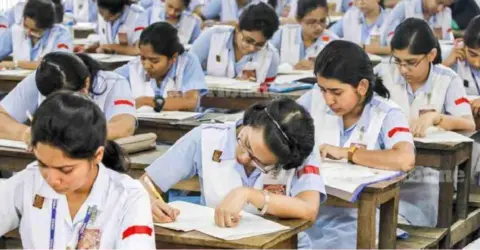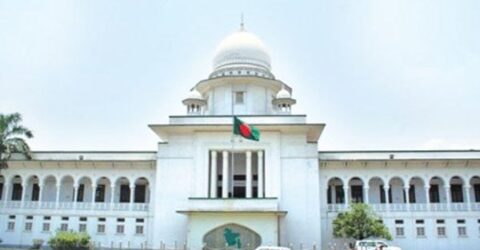
Zunaid Ahmed Palak
Words can not define the contribution of Begum Mujib to the Bengali nation. Her love for the people was unconditional and genuine. Therefore, she became the mother of the Bengali nation or ‘Bangamata’. Bangamata was the source of inspiration in Bangabandhu Sheikh Mujibur Rahman’s two decades of struggle against the Pakistani ruling class.
In this long struggle, Bangabandhu spent almost 14 years in prison cells. Not only in Bangabandhu’s presence, Bangamata Fazilatunnesa Mujib has kept close contact with the people so that the movement does not slow down in his absence. That is why people used to call her ‘Bhabi’ and regarded Bangabandhu as ‘Mujib Bhai’.
Fazilatunnesa Mujib was born on this day in 1930 in Tungipara village of Gopalganj district. On the night of 15 August 1975, she was brutally murdered along with other members of her family by the assassins of the Father of the Nation.
People respected her as the wife of Father of the Nation Bangabandhu Sheikh Mujibur Rahman. She is also the mother of Sheikh Hasina, Sheikh Kamal, Sheikh Jamal, Sheikh Rehana, and Sheikh Russell. She is an epitome of our freedom and liberation struggle. Her descent to the earth and the departure both happened in the month of August.
On the 91st birth anniversary of Bangamata Sheikh Fazilatunnesa Mujib, I pay my deepest respects to her. She is a true friend of Bengal and its people. The political activists of our generation have not had such an opportunity to witness the leadership of Father of the Nation Bangabandhu; likewise they did not get the opportunity to see a self-sacrificing majestic woman like Bangabandhu’s wife Begum Fazilatunnesa Mujib. In a memoir, Bangabandhu’s daughter Sheikh Hasina wrote about her mother Begum Fazilatunnesa Mujib that how a selfless woman has made an extraordinary contribution from turning Sheikh Mujib to be the beloved leader of Bengali nation while maintaining a family and rearing children.
People’s leader Sheikh Hasina has given an inner view of Bangabandhu by publishing Bangabandhu’s autobiography also known as ‘Osomapto Atmojiboni’. After the publication of the book, the present generation has come to know the influence and contribution of Begum Mujib in Bangabandhu’s political life. An analytical reader can find numerous examples of her political wisdom and far-sightedness and impact on Bangabandhu’s life from this autobiography.
Bangabandhu wholeheartedly loved people. He had affection for the leaders and workers of Awami League and knew no bounds. We see these qualities resonated in Begum Mujib’s activities. She was the companion of party workers in their cheerful and sorrowful moments. Whether it was the best political activist or the common man, no one would ever return empty-handed who sought her support.
Begum Mujib was like an umbrella to Bangabandhu’s days in the student politics to his martyrdom. Begum Mujib has sacrificed a lot for the struggle for independence. Even during the initial stages, Begum Mujib regularly supported Bangabandhu with monetary support earned from her father’s property. This attitude of cooperation for the perusal of political activism continued till her death. She even sold her jewelry to carry forward the patriotic struggle of independence.
In a publication by the Awami League, Bangabandhu’s daughter Sheikh Rehana mentioned in a memoir, “My mother was an ardent supporter of my father’s political activities. Her dedication can not be compared with anyone else in terms of patience, principle, family values, love and affection.”
Bangabandhu had to spend days after days and months after months inside the jail for the freedom struggle. At that time Begum Mujib was the center or refuge of the young activists of the Awami League, especially the student leaders. She adored political activists dearly. She used to bind them together with motherly compassion. Prominent columnist Abdul Ghaffar Chowdhury wrote about Begum Mujib: “A student leader or a political activist who had been hiding for a long time in starvation and destitute condition, when entered the house no 32 was accepted by Begum Mujib with warm food cooked by her.”
In many critical sphere’s of Bangabandhu’s political life, Begum Mujib has helped to make the right decision with good advice. During the riots of 1947, Begum Mujib did not forbid her husband to go to the riot-prone areas even though she was ill. At that time Begum Mujib wrote in a letter to her husband, “You were not just born to be my husband, you were born to work for the country. Serving the country is your biggest job. Feel free to go to work. Don’t worry about me. Leave me to the mercy of God.” How old was Begum Mujib? Born in 1930, she was just 16 years old. A young woman of this age has given up her happiness, peace and comfort and has given priority to the needs of the country. This example of sacrifice for the country is unimaginable at the present time.
Even during the tumultuous period of the 6-point movement declared by Bangabandhu in 1966, Begum Mujib, without caring the repercussions of the ruling class, has cooperated with her husband with courage and determination from above all temptations. Begum Mujib was always in touch with the young activists, students, and youth of the party. She used to stand beside them at all moments. Begum Mujib was well aware of the uncompromising attitude of the youth towards the movement and inspired her husband to jump into the freedom struggle. She believed that there could be some hesitation among the elders on the question of movement. But the Awami League under the leadership of Bangabandhu, the thousands of youth of Chhatra League will never back down from the path of freedom movement.
Begum Mujib’s timely decision in the fiery days of 1971 is considered as a turning point in the history of the freedom struggle. Sheikh Mujib was then in jail in the Agartala conspiracy case. General Ayub Khan invited the political leaders to a round table meeting to bring the situation under control. It was a proposal to release Sheikh Mujib on parole and go to the proposed round table. Many of the accused in the Agartala conspiracy case agreed to the proposal. At that time the people’s demand was to withdraw the conspiracy case. Begum Mujib was against participating in the roundtable meeting on parole. If he agrees to be released on parole, she sends a strong message of severing marital ties to Mujib, a prisoner in the cantonment. Like her husband, she was uncompromising on the question of policy. The dictatorial Ayub government was forced to release Sheikh Mujib under the pressure of a strong movement in the streets.
Begum Mujib was the inspiration for Bangabandhu’s historic speech on March 7. She advised her husband to give a speech based on his conscience. The epic words “This time the struggle is for liberation, this time the struggle is for freedom” echoed by millions of voices because of having wise women like Begum Mujib by Bangabandhu’s side.
Begum Mujib’s memory was very sharp. She could remember the political events correctly. For this reason Bangabandhu used to call Begum Mujib his ‘living diary for life’. While in prison, she used to bring all Bangabandhu’s instructions from the jail to the Awami League and Chhatra League. Again she used to go to the jail gate and inform Bangabandhu about all the incidents of the movement. Begum Mujib was a bridge between Bangabandhu and the leaders and activists during his long prison life. Bangamata Begum Fazilatunnesa Mujib has been a tireless worker for the Bangladesh Awami League, the political entity that shaped the history of Bangladesh. All the policy-making meetings including the meeting of the executive committee of the Awami League were held at house No. 32 in Dhanmondi. Begum Mujib never considered it a problem. Instead, she happily cooked food and served it to everyone. No one can ever erase the name of Begum Mujib from the hearts of Bengali’s for her outstanding qualities of conscientiousness, foresight, courage and patriotism. She will be the polaris in Bengali history.
People’s leader Sheikh Hasina inherited the spirit of patriotism and qualities of both of her parents. Today, she is serving as the Prime Minister of the Government of the People’s Republic of Bangladesh for the fourth time. She leads a simple life like her parents. Bangabandhu loved the party leaders and workers as well as the people of the country with all his heart. He had close relations with grassroots leaders and activists. Due to this great quality, he has become ‘Bangabandhu’ from everyone’s favorite ‘Mujib Bhai’. Begum Mujib was also a close relative of the leaders and workers. Bangabandhu’s daughter Sheikh Hasina is the most beloved ‘leader’ or ‘mother’ of the leaders and workers because of her outstanding qualities of service to the country-a trait acquired from her parents. Sheikh Hasina is the last refuge of the people in favor of the liberation war. In the midst of all the sorrows and pains, the divine blessings of the parents is the support of Sheikh Hasina to move forward.If you want to know Begum Mujib, you should read Bangabandhu’s ‘Unfinished Autobiography’ and ‘Prison Diary’. A study of the two books will reveal more unknown facts about Begum Fazilatunnesa Mujib, which will enrich our appetite for knowing history and protect the nation from distortion of history.
The national poet Kazi Nazrul Islam wrote in his poem, ‘All the great creations in the world that are eternally beneficial, half of them are done by women, half by men.’ The best achievement through long struggle under the leadership of Bangabandhu was the independence of Bangladesh. Fazilatunnesa Mujib, the majestic woman of Bengal, is the inspiration behind all these struggles and movements of Bangabandhu.
The writer is the State Minister for Information and Communication Technology Division and a Parliament Member



